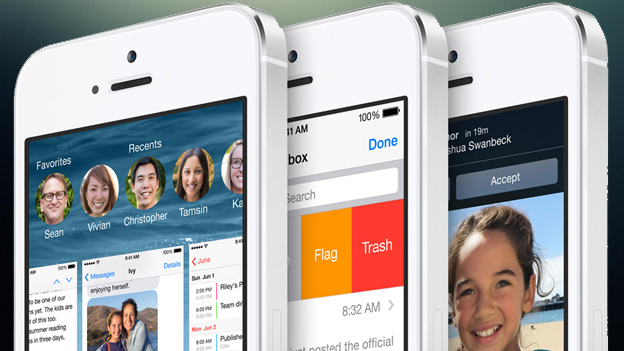iOS 8: what it means for business
How will the new iOS 8 features affect businesses?

Sign up for breaking news, reviews, opinion, top tech deals, and more.
You are now subscribed
Your newsletter sign-up was successful
Apple's iOS 8.1.1 update was recently made available to download. CoSoSys CEO Roman Foeckl breaks down what Apple's latest moves around iOS 8 mean for enterprise security and IT departments around the world.
TechRadar Pro: How will the new iOS 8 features affect businesses?
Roman Foeckl: iOS 8 brings appealing features targeted to both consumers and businesses, placing Apple on the road to becoming the favorite provider for mobile devices, and, as we will see with Yosemite, for computers as well.
This fact is also supported by recent published reports that of Apple's $42.1 billion in quarterly revenues 56% of it is due to iPhone sales. In addition, Apple's market share for Macs increased from 5.7% in 3Q13 to 6.3% in 3Q14.
These facts indicate that the new operating systems has been embraced by users and companies, so iOS 8 and OS X Yosemite have already started to line up in the operating systems palette of businesses. It's in the power of businesses to decide how the features of iOS 8 will affect them.
The iCloud Drive, for example, could impact companies in both positive and negative ways. By offering the ability to store any type of file, iCloud Drive becomes a perfect option for users seeking to continue to work at home; they can store and easily access confidential reports or other documents while on a business trip, etc. Apple is presenting enterprise IT departments with the challenge to adapt to its new features fast.
TRP: What actions should IT administrators take when managing corporate data vs. personal data through iCloud Drive?
Sign up to the TechRadar Pro newsletter to get all the top news, opinion, features and guidance your business needs to succeed!
RF: IT administrators should treat iCloud Drive like a public place where corporate data must not exist. As stated before, we believe that, despite all the security measures taken by Apple, the fact that there is minimum control for an IT admin over what happens with data once it gets on iCloud Drive should motivate them to filter which documents employees are uploading and/or waiting to sync. Admins can achieve this with Data Loss Prevention (DLP) and Mobile Device Management (MDM) solutions.
Should IT departments encourage its workers to use the Apple iOS 8 feature, Handoff, when transferring corporate data on different devices?
RF: Handoff is one of the most fascinating features provided by Apple. Handoff will be loved by consumers, but it represents a concern for the enterprise IT staff that have to address matters of compliance, data loss, data leakage prevention and Mobile Device Management.
From a productivity perspective, yes, IT departments should encourage their workers to use the Apple iOS 8 Handoff feature. However, data security should be primordial, so IT departments' role is to find the right balance between enabling users to benefit from Handoff and securing data on different devices.
A first step should be to set different levels of authorization. For example, IT administrators can decide which users can use Handoff based on permission to use iCloud. Handoff is probably the feature with the highest impact for businesses, as confidential data can be divided among multiple devices and productivity could increase. However, data loss is imminent when working with Handoff, which is why we recommend authorizing the use of this feature only for certain categories of users.
TRP: What role will Apple Pay play into corporate IT?
RF: There are two perspectives that should be examined; the first is for companies that accept NFC payments, like retailers; and the second is companies that allow the use of Apple Pay for corporate payments.
The first group should make sure NFC payments with Apple Pay fall within PCI compliance. The concerns the second group - enterprises and SMBs - have about Apple Pay, and their IT departments, should spur them to provide guidelines to staff on how Apple Pay works and how it should be used and not used. For now, this is the best they can do since they cannot control or disable the feature remotely.
Beyond iOS 8, given the partnership between Apple and IBM, enterprise needs will be further addressed by Apple's Mac OS X to deliver even more enterprise ready features that are understood and demanded by IBM's enterprise customer base. With the recent release of OS X Yosemite, Mac users in the enterprise, and home users, are rapidly adopting the new operating system; not because it is free but because it offers many great features that those user groups will love.
